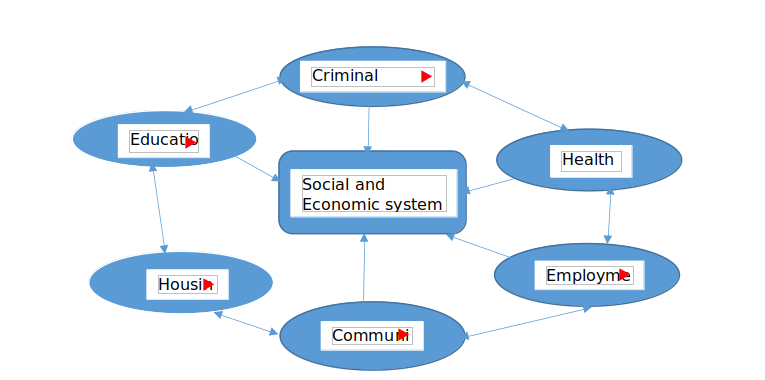Question
Present a process for how a group obtains power, and then compare and contrast that outline with your own person experience. First, provide a detailed outline or diagram that speaks to the steps that occur either covertly or overtly for the group to remain in power. Be specific, in terms of access to goods, services, and privileges. Select a particular group of interest and provide the steps that group has taken to place itself in a position of power and what opposing groups have done to attempt to remove the group from power. Second, compare and contrast the outline or diagram with an experience from your own life. Focus on at least one of the following issues:
How has privilege, in any/all forms, shaped your life? Consider race, socioeconomic status, education, and other associations identified in Week 1.
Have you been aware of the privileges in your life as you were growing up? Why or why not?
As you learn more about privilege, and as you examine your life, what do you find most interesting or surprising?
How has privilege shaped your life opportunities, life chances, experiences, etc.?
Are there any laws that protect any of the groups involved? If so, what are they and how do they impact the relationship between the group and others?
Your paper should be 660-1320 words in length. Support your claims with at least three scholarly references.
Sample paper
Privilege as an African American
Racialization greatly influences distribution of power among various ethnic groups. Racism has defined societies for years, and has also become deeply embedded in social and economic structures found in modern societies. Racial differentiation in the society serves both an economic and social purpose. The progression of racial differentiation occurs through the social structures, the legal system, and through political controls. Beliefs systems in society reinforces racial differentiation in society, for instance the belief in white superiority in the U.S. Moving back in history, racialization has played a significant role in distribution of power in the U.S. The whites in the U.S. have been considered as the true citizens. For many years, the whites were given more privileges compared to other groups of people (Bobo & Fox, 2003). The worse forms of racialization occurred in the job sector and citizenship, producing detrimental impacts that are still evident even today among minority races. Discrimination was high in other areas such as immigration status, voting rights, and criminalization.
In my own personal experience, racialism has played a significant role in group acquisition of power. Currently, there is much debate on retraction of equity laws which some people consider as unfair. This has come after one group felt a loss of power. This group thus agitates for social restructuring in order to retain the power held over time. This prompts the group to use their social and political influence to exercise power over the other. In the U.S., African Americans are likely to such more for work compared to the whites (Gallagher & Lippard, 2014). African Americans currently hold less wealth compared to that held by whites on average. Racism causes social stratification that places African Americans and other minority groups at the lower end in terms of wealth, income, occupation and empowerment.
Figure 1.1: Steps that occur for the group to remain in power.

Racism is reflected in all the social systems of the society. It is reflected in both political power and economics (Gallagher & Lippard, 2014). In the diagram above, racism runs through the cores aspects of the society. It is reflected in the community, housing, education, employment, and so on. All this impacts the social and economic system. Thus if a person is born to a particular group, there are higher chances that he/she will remain in that same class due to the issue of racism. This is because the person will be accorded the same educational opportunities, housing, health opportunities, and other factors that determined success.
Privilege has greatly shaped my life as an African American. The most influential aspect of privilege was in the affirmative action plan that helps minority gain access to educational and job opportunities. Policies such as racial quotas adopted in the education system greatly helped in securing admission to college. The affirmative action plan came into effect as a bid to push for equal rights among various classes of people. It advocates for fairness in education admission process, job opportunities, career advancement and scholarships. Affirmative action plan has helped secure college admission to many African Americans who would have ordinarily have been left out of the admission process (Kahlenberg, 2010). The implementation of affirmative action policy can be traced to the Civil Rights Movement which was an active attempt by the African Americans to increase their power. The Civil Rights Movement was active in the 1950s to 1960s and pushed for equal rights among various classes of people.
Opposing groups have made attempts to curtail the power acquired by African Americans. This is evidenced by retraction of some of the equity laws that were meant to ensure that there is fairness in society. The affirmative action policy in particular has been challenged as reverse discrimination by whites. This is despite its importance in enhancing fairness and racial balance in the education and job sectors. From the diagram, it is clear that particular race or group of people have access to education, job opportunities, housing, and control the justice system. This group of people advances more compared to the other class.
References
Bobo, L. D., & Fox, C. (2003). Race, Racism, and Discrimination: Bridging problems, methods, and theory in social psychological research. Social Psychological Quarterly, 66(4): 300- 332.
Gallagher, C. A., & Lippard, C. D. (2014). Race and racism in the United States: an encyclopedia of the American mosaic. Santa Barbara, California: Greenwood.
Kahlenberg, R. (2010). “Introduction”. Rewarding Strivers: Helping Low-Income Students Succeed in College. New York, NY: Century Foundation Press.
Related: